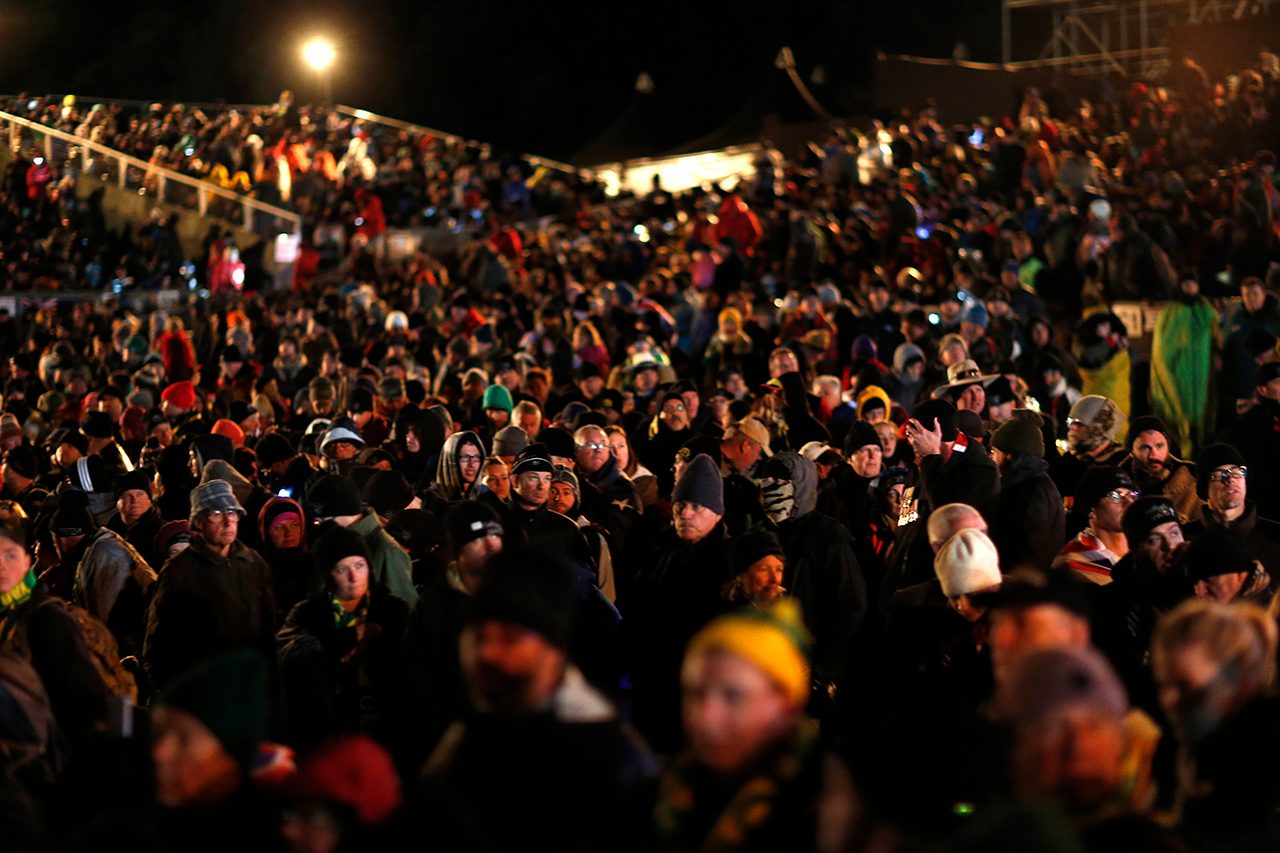SUMMARY
This is AI generated summarization, which may have errors. For context, always refer to the full article.

SYDNEY, Australia – Record numbers of Australians and New Zealanders turned out Saturday, April 25 to mark the centenary of the Gallipoli landings amid tight security, a formative event that helped forge their identities as independent nations.
Dawn services were held across the two countries on the anniversary of the ill-fated 1915 campaign of the Australian and New Zealand Army Corps that left 11,500 of them dead in what is now Turkey during World War I.
“They loved and were loved in return, were prepared to fight for their beliefs, were, like us, prey to fears and human despair,” said Chief of Army David Morrison in an emotive address in Canberra at the Australian War Memorial.
“It makes their sacrifice and their capacity to endure real despite the passage of time.”
A record crowd of 120,000 people were on hand to view the solemn service, up more than 80,000 from last year, official figures showed.
In New Zealand, more than 20,000 people attended a ceremony at the national war memorial in Wellington, where Governor-General Jerry Mateparae was joined by Australian counterpart Peter Cosgrove.
Anzac Day affirmed “the qualities we prize: courage, compassion and comradeship, qualities which were displayed by our troops on the Gallipoli Peninsula and by our armed forces in subsequent conflicts,” Mateparae said.
He added that Gallipoli was “the beginning of an eight-month ordeal, an experience which was to be a turning point in the history of this nation.”
The battle to open the Dardanelles in 1915 met fierce resistance from the Ottoman Turkish defenders and the Allies lost at least 45,000 soldiers. An estimated 86,000 died on the Ottoman side.
Many view the bloodshed at Gallipoli as the foundation moment for both of the former British colonies, who were eager to establish their individual reputations.
It was the first time they had fought on such a scale as Australia and New Zealand, with Anzac troops hailed for their comradeship and courage.
Thousands of Australians and New Zealanders have made the long journey to join the tributes to their forefathers at Gallipoli, including Australian Prime Minister Tony Abbott and New Zealand’s John Key.
Ceremonies there were to start at dawn to remember those who died.
Britain’s Queen Elizabeth II was later to lead commemorations in London.
“It means so much to come back and give them the respect they (the troops) deserve,” said Marjorie Stevens, 87, from Adelaide, who made the trip to Turkey.
A magnificent defeat
Security at events across Australia was tight, with a highly visible and heavy police presence after authorities last weekend foiled an alleged plot to launch an Islamic State-inspired attack at an Anzac parade in Melbourne.
But police said there was no specific threat on Saturday and Prime Minister Tony Abbott urged people to show up in numbers to send a defiant message to would-be terrorists.
He told national broadcaster ABC that the battle, while a defeat, was a pivotal moment for Australia.
“It was, if I may say so, a magnificent defeat because of the courage, the tenacity, the selflessness, the duty and service that was displayed by our soldiers here,” he said.
“We discovered a great deal about ourselves, we discovered a great deal about our Turkish foes -– they were honorable foes – that is why there’s been a friendship from that day to this.
“We should remember Gallipoli but we should also remember the terrible victory of the Western Front which Australia played such a significant part,” he added.
At the ceremonies in Australia and New Zealand, there were moving tributes to fallen mates and calls not to forget those injured in conflict.
In Melbourne, the city’s Federation Square was blanketed in more than 250,000 hand-knitted red poppies while in Sydney wreaths were laid and the last post sounded as a sea of men, women and children bowed their heads and observed a minute’s silence.
Brett Smith, 49, took his children to “remember the past and think of the future.” – Martin Parry, AFP/Rappler.com
Add a comment
How does this make you feel?
There are no comments yet. Add your comment to start the conversation.